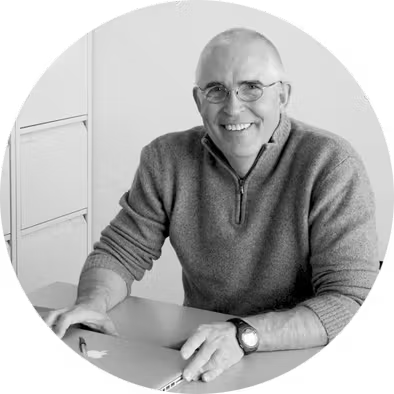Johan Auwerx is Professor at the École Polytechnique Fédérale in Lausanne, Switzerland, where he directs the Laboratory for Integrated and Systems Physiology (LISP).
Dr. Auwerx has been using molecular physiology and systems genetics to understand metabolism in health, aging and disease. Much of his work focuses on understanding how diet, exercise and hormones control metabolism, and changing expressions of genes. He is considered to be one of the world experts in the field of mitochondrial health.
Today we would like to discuss the importance of mitochondrial health and its impact on health span and longevity.
Professor Auwerx, I would like to start with the more general question, namely, what is your own definition of aging and longevity?
Dr. Auwerx: Okay, I think my definition of aging and longevity matches the definition of many people in the field. Aging is not a disease, it’s just a gradual slowdown and breakdown of physiology. And longevity, for me, is not necessarily a long life, but it’s a healthy life so that we become resilient to this breakdown.
One of the areas of your research focuses on how diet, exercise and other epigenetic factors influence our longevity. As noted in one of your presentations, already Luigi Cornaro in the XV century stated that caloric restriction increases health- and life-span. It took us over 600 years to prove it … What else do we know today?
Dr. Auwerx: I think Luigi Cornaro was the first very well-documented example of someone who proved that eating less could be beneficial to you. And what do we know? We probably understand how this works now, because there have been studies in a number of model organisms, that each time have shown that caloric restriction or eating less (not to the level of fasting), is good for you. And what it basically does, and how it works is that if you consume fewer calories, you’re going to get those calories from your own body. And to get those calories from your own body, you really need to activate the mitochondria. We store calories in our bodies as fat, so you will exhaust these fat reserves and to get the energy out of this fat, you really need to activate your mitochondria. We know that this caloric restriction really hinges on mitochondria. Exercise is very much the same thing. When you exercise, you also come to a point where the energy which taken by food is not sufficient so you’re going to draw on the resource which you have in your body. And again, you activate the mitochondria. And you were also alluding to epigenetics. What does epigenetics have to do with it? These factors will leave an epigenetic footprint. So when you are caloric restricted, you will change your gene expression pattern, not specific genes, but the global gene expression pattern in a favorable way, as dictated by the mitochondria, which are working.

Upon aging, your mitochondria become less efficient, because they accumulate damage through the years. And that explains why there’s less energy made.
Can you explain the importance of mitochondria itself and its impact on our longevity and vitality?
Dr. Auwerx: They are the energy factories of ourselves. So if you look at an old worm, or you’re looking at an old person or an old animal, one thing you see if you go walk your old dog, it will move slower, if you see an old worm it will move slower, as an old human being who is most of the time sitting. So that means one of the contributing factors to this is you lack this energy. This energy is harvested in the mitochondria, and that’s where the link between mitochondria and aging comes from. Upon aging, your mitochondria become less efficient, because they accumulate damage through the years. And that explains why there’s less energy made.
How can we best improve mitochondrial activity?
Dr. Auwerx: One thing is to caloric restrict, because caloric restriction puts less stress on mitochondria. You need to think every meal you take, energy is going to your mitochondria,. So if you eat less, you’re going to charge your mitochondria less. It’s like a motor. If you drive a motor, always at full speed, you will use the motor fast. If you drive the motor, much less and at a lower speed, the motor will last longer. Another way to improve mitochondrial activity is to exercise, or there are now more and more pharmacological ways also coming, drugs or food, which can change mitochondrial activity.
It brings me to another question and quoting Hippocrates, who said “our food should be our medicine.” So which type of foods and nutrition would be best to improve our mitochondrial health?
Dr. Auwerx: I am a strong believer that you should eat everything. So you should eat carbs, fat, and protein. I’m not like one of these people who believe in a low fat, ketogenic or any other type of diet. I think you need everything. And if you eat a lot of vegetables, if you need carbs, if you need your fat, you will have contained in the food you taste, small molecules which activate your mitochondria. Giving you an example, all of the vegetables contain flavonoids, like resveratrol, etc. so this will be beneficial for you.

If you eat a lot of vegetables, if you need carbs, if you need your fat, you will have contained in the food you taste, small molecules which activate your mitochondria.
And how does stress impact our mitochondrial health?
Dr. Auwerx: You see – stress is good. People who are not stressed, are people who go into retirement, they don’t have stress but they go into decline. So I think a moderate level of stress is essential in life. And this is part of life. Life is changing. If you look at the biochemical definition of life, it involves change – you change yourself all the time, it could be psychological or biochemical and that low amount of stress is good; because it’s like if you were a soccer player who spent all your time on the bench you would not be stressed and you wouldn’t perform well. So it’s very similar in all walks of life, from biochemistry to psychology, you really need a low level of stress. Definitely.
This is very interesting, because people usually consider stress to be something negative, but could be supporting our health and our system. One of my very favorite quotes regarding healthy longevity is to “die young as late as possible.” What is your personal recipe for longevity and vitality?
Dr. Auwerx: Dying young means that you die young in spirit and physiologically, which postpones decline, and extend your health as much as possible in your life. And that is really the best recipe to try to live a healthy life, keep your mitochondria in good shape, keep stress to a moderate level, but don’t avoid it. All the small things would improve the health span.
Are there any books that are related to healthy longevity that you would like to recommend to our listeners?
Dr. Auwerx: I would say to them to avoid literature where people are trying to promote living to 120 years. There’s one book from a guy called Nick Lane about mitochondria, which is interesting. That’s a good book.
Thank you very much, professor.

